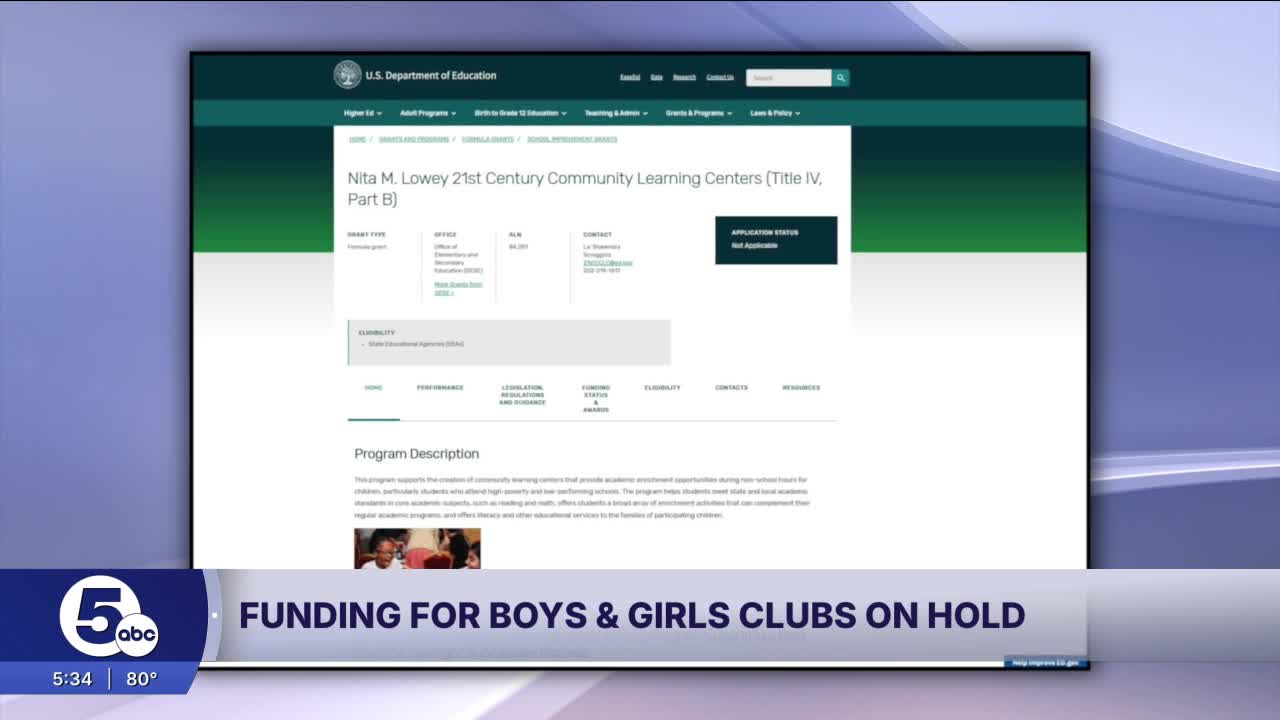Update: We just learned from the Ohio Dept. of Education and Workforce that the federal government is going to release $1.3 billion in grant funding to support before- and after-school funding programs here in Ohio and across the nation. CLICK HERE to read more.
Original story below:
The federal government has frozen $6 billion in previously approved education grant funding as it conducts a review of how the money is being spent.
The funding pause affects several programs run by schools and other organizations nationwide, including migrant education, teacher professional development, services for English learners, and before- and after-school programs.
Grant recipients had expected to receive funding by July 1.
Before and after-school programming
The 21st Century Community Learning Centers (CCLC) program provides students from economically disadvantaged families and low-performing schools with homework help and exposure to developmental activities.
The Boys and Girls Clubs of Northeast Ohio said it was set to receive $1.8 million to operate 11 of its CCLC programs this upcoming school year.
They include services at Joseph M. Gallagher and Franklin D. Roosevelt schools in Cleveland, as well as six in Lorain County and one each in Summit, Erie, and Huron counties.
“We're giving kids the opportunity to learn and grow in safe environments, and I think sometimes you may not necessarily see what that means until it's not there,” said Allen Smith, CEO of the Boys and Girls Clubs of Northeast Ohio.
Smith said it’s unclear if any of its CCLC programs will have to close. He said about 1,200 local youth benefit from the federal funding, and contingency plans are being discussed.
“Our hope is that the freeze will be lifted between now and the start of the school year. If in fact it is not lifted, it will impact several of the locations that we operate,” Smith said. “We have a great deal of respect for our friends in Congress and we believe that the federal government believes that the Boys and Girls Clubs is a very positive thing. I think one of the ways that they can show that they believe in the work that we do is by releasing the funds.”
However, he acknowledged that if the money remains frozen, fewer children will be served compared to previous years. Nevertheless, work is underway to try to serve as many kids as possible.
“Our team has been diligently budgeting and thinking about which sites we could potentially transport kids to if in fact we did have to relocate young people,” Smith said.
Smith said the uncertainty of the situation weighs heavily on Boys and Girls Clubs staff and families, noting that joining a club is free and provides a safe place for kids ages 6–18 to be.
“We know that juvenile delinquency takes place between the hours most frequently of 3 and 6,” Smith said. “We provide kids with meals. We provide them with assistance with their homework. They get exposure trips (and) opportunities to engage in things that they never would outside of the Boys and Girls Club. And all that could be lost if in fact the funds are not unfrozen.”
I reached out to the U.S. Department of Education and the 21st Century Community Learning Centers to learn more about the review that’s taking place and what, if any, guidance is being given to grant recipients.
I was directed to contact the Office of Management and Budget. As of Thursday afternoon, I hadn’t heard back.
Numerous organizations in Northeast Ohio were approved to receive the CCLC grant funding, including University Settlement in Cleveland, which has already laid off several employees.





